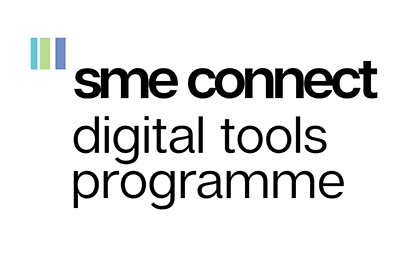
 05-01-2026
IBCM Presented at the 11th Ibero-American Business Meeting...
On November 18th, SDM participated at the 11th Ibero-American Business Meeting, organized by the....
05-01-2026
IBCM Presented at the 11th Ibero-American Business Meeting...
On November 18th, SDM participated at the 11th Ibero-American Business Meeting, organized by the....
 26-11-2025
Madeira’s IBC Regime Extended Until 2033
On 20th November 2025, the Portuguese Parliament approved the extension of the preferential tax r...
26-11-2025
Madeira’s IBC Regime Extended Until 2033
On 20th November 2025, the Portuguese Parliament approved the extension of the preferential tax r...
 11-11-2025
Madeira reinforces its strategic role in the European economy...
President of SDM highlights the contribution of the Madeira International Business Centre at a Eu...
11-11-2025
Madeira reinforces its strategic role in the European economy...
President of SDM highlights the contribution of the Madeira International Business Centre at a Eu...
 07-11-2025
Argentine Ambassador to Portugal meets with SDM to learn about the Madeira's IBC...
The Sociedade de Desenvolvimento da Madeira (SDM) welcomed on October 31st the visit of the Ambas...
07-11-2025
Argentine Ambassador to Portugal meets with SDM to learn about the Madeira's IBC...
The Sociedade de Desenvolvimento da Madeira (SDM) welcomed on October 31st the visit of the Ambas...
 29-09-2025
CEO of Madeira’s IBC Company Appointed European Cybersecurity Ambassador...
Thomas Berndorfer, CEO of Connecting Software, a company licensed in the Madeira International Bu...
29-09-2025
CEO of Madeira’s IBC Company Appointed European Cybersecurity Ambassador...
Thomas Berndorfer, CEO of Connecting Software, a company licensed in the Madeira International Bu...
 24-07-2025
87 New Companies Registered in Madeira’s IBC in the First Half of the Year...
The latest statistical data regarding the development of Madeira´s International Busines...
24-07-2025
87 New Companies Registered in Madeira’s IBC in the First Half of the Year...
The latest statistical data regarding the development of Madeira´s International Busines...
Rui Nascimento*
The International Business Centre of Madeira (IBC) is internationally recognised as one of the main business centres in the world. During the past few years it has also been gaining reputation as a platform for companies engaged in electronically supplied services, due to the highly competitive Value Added Tax (the “VAT”) rates.
One of the measures adopted by the Portuguese government to counteract Portugal's excessive budget deficit was to increase the standard VAT rate by 2% with effect from July 1st, 2005. Accordingly, the standard VAT rate in Madeira is currently 15% (1), instead of the previous 13%, which was then the lowest standard VAT rate in the European Union. A 15% standard VAT rate is, however, still one of the lowest standard VAT rates in European Union and, therefore, the comparative advantage of Madeira, although shacked, has not been jeopardized by the increase.
What are the benefits of this? Consider the example of the Council Directive 2002/38/EC of 7 May 2002 on the value added tax arrangements applicable to radio and television broadcasting services and certain electronically supplied services (the “Directive”). The Directive has established new rules that have created important business opportunities within Madeira's IBC. Specifically, the Directive introduced new VAT localization rules and created a special scheme for non-EU VAT taxable persons who provide electronically supplied services to non-taxable persons resident within the European Union. If the electronically supplied services are provided by a non-established taxable person located in Madeira (by means of a fixed establishment) to non-taxable persons or entities resident in Portugal or any other Member State, the operation is deemed to be located in Madeira and subject to the standard VAT rate of 15%.
The Council of the European Union has approved, on December 19th, 2006, Directive 2006/138/CE which extends the period of application of the Directive. This means that the regime currently in force will remain fully applicable at least for two more years, until December 31st, 2008.
Although Madeira's IBC has initially been conceived to be an industrial centre and at a later stage to attract financial services, currently, there are undoubtedly non-financial reasons that are capable of attracting investors to Madeira's IBC. The future development of the IBC is in straight-line with the encouragement of investment in activities of a non-financial nature, such as those linked to information technology, electronic (or) e-business and e-commerce, which can conciliate both the benefits of the direct tax incentives available, as well as one of the lowest standard VAT rates in the European Union.
*Lawyer and tax advisor, International Tax Services Department, Landwell-PricewaterhouseCoopers, Madrid rui.nascimento@es.landwellglobal.com.